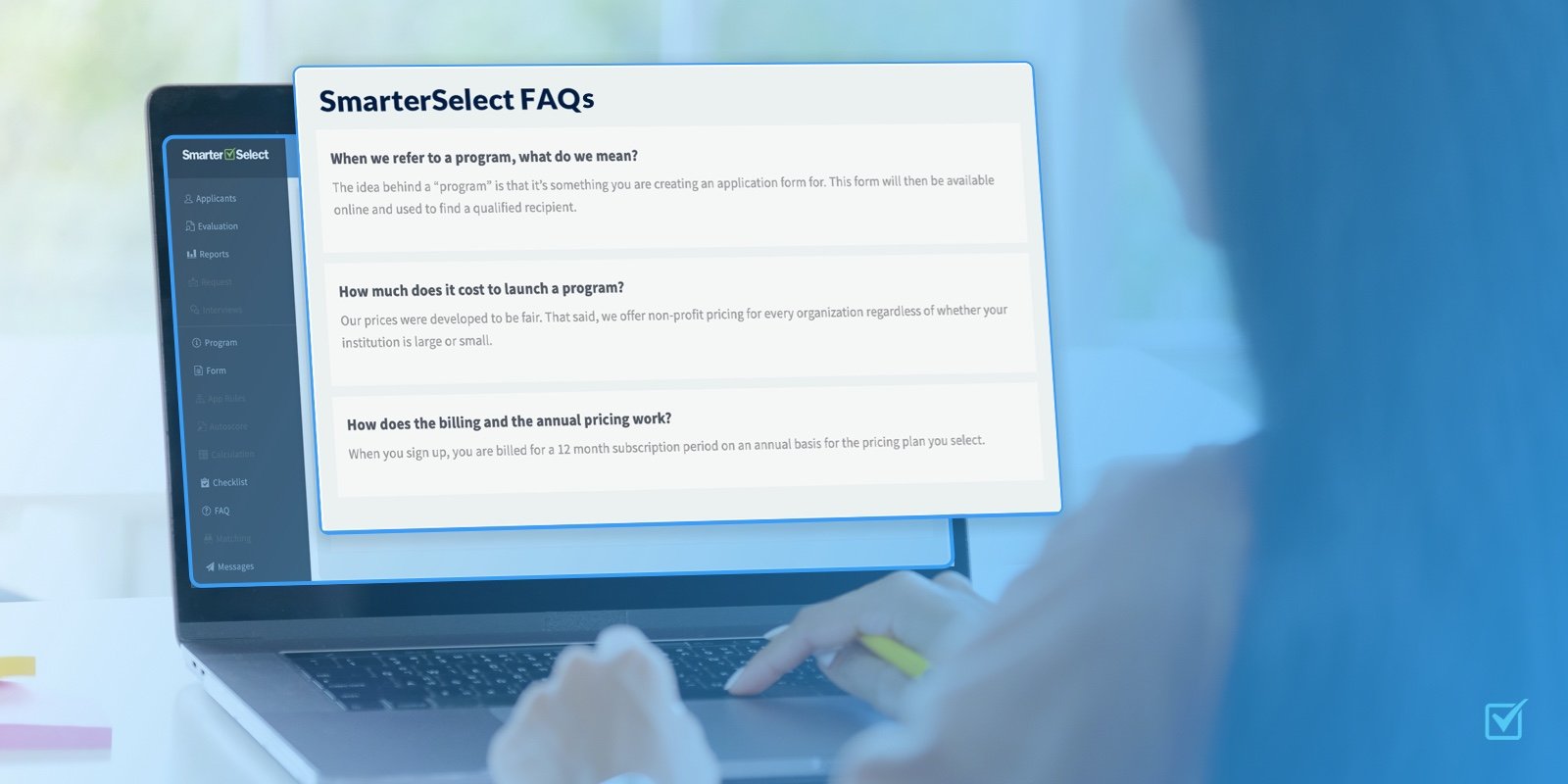It's not often that online application forms make the front page of the Wall Street Journal, but yesterday, the A-Hed (WSJ's front page humor article) was all about people with unique names and the trouble they have with application or web forms.
The article titled, "If Your Name is Mr. Test, It's Really Hard to Fill in Web Forms", chronicles the humorous, but mainly frustrating, challenges that people with last names like "Test", "Blank", and "Null" have when those same names are used by software developers for testing and spam detection purposes.
Be assured, that at SmarterSelect, we have no problem with those names as our staff is more creative when testing our application forms. Typically, you'll see us use the name of our children, pets, sports team members (especially from Casey who is a big Steelers fan), and even famous musicians. So, enjoy the complete article we re-published below.
If Your Name is Mr. Test, It's Really Hard to Fill in Web Forms
This is a Test. Tom Test, a voice-over artist in Chicago. He wants the internet to know that’s actually his name.
“Sometimes I write back, ‘I’m a real person!’” Mr. Test said of emails he receives several times a month seeking to confirm his subscription to dating apps and shopping sites he didn’t join. Many people keen to hide their own identity, he has surmised, assume “Tom Test” is a name no one has.
“It can be exasperating,” he said.
His brother Brian Test agrees. So do Avery Blank, Christopher Null and David Books. Each has a surname some computers—or the people operating them—consider too good to be true.
Some names are common placeholders used to check website features. Others are commands that trigger software or scripts of code to leave an entry empty. A small slice of the population has a surname that trips up computers. But for them, opening a bank account or reserving a rental car can be a punishing experience.
“I was a flaw in their system,” said James Test, Tom’s uncle, of one September Sacramento-to-Tucson trip that was thwarted at every turn because his American Airlines reservations were repeatedly canceled. “The booking would last only long enough to process my credit card, then fade to just a test,” he said.
American spokesman Matt Miller recommended customers who run afoul of this “rare phenomenon” make bookings by phone or sign up for the airline’s frequent-flier program, which would hold more identifying information in its computer system.
Jeff Sample got caught last year in a Kafkaesque standoff among his travel agent, credit-card company and an Argentine airline after their computers refused to hold his reservation for a flight from Buenos Aires to Patagonia. “I know I’m not the only Sample,” he said. “How could it become such a big deal?”
Often the culprit is a web program too sensitive to potential spam accounts, said Ashley Sheridan, a developer at a tech company in London who has written on his website about how to prevent such hang-ups. While many sites have switched to verification processes that allow most to confirm their identity, developers say too many sites still check emails against long lists of phrases that could be fake.
“There’s a lot of lazy engineering out there,” says Akin Adebowale, co-founder of Oxosi.com, an online clothing retailer. His team scrubbed out glitches that could disregard an order from a Mr. Null, for instance, ahead of the site’s public launch last year.
Many newer websites and computer systems have been built to recognize that some common words can be names, said Kyle Connors, a technical architect at software consultancy Tivix. Older systems that have been upgraded over time may have missed some of those fixes.
David Books, despite being a former computer programmer, says he doesn’t trust computers at all. “It’s all automated and people just slide through the cracks and they don’t care,” said the 63-year-old, adding that it took two years for him to persuade Facebook to acknowledge his personhood in 2013. He sent in copies of his driver’s license and passport but was told ‘you’re not who you say you are and this was your final appeal,’ according to Mr. Books. He then sought the help of Christopher Elliott, an author and consumer advocate, who publicized Mr. Books’ plight on his blog.
Facebook, which calls itself “a community where everyone uses the name they go by in everyday life,” won’t approve profiles with honorifics, numbers, “unusual” capitalizations, or “offensive or suggestive words of any kind.”Mr. Books thinks his name just seemed too generic to be believed. The company said it believes the process through which Mr. Books eventually proved himself is fair. Facebook declined to elaborate.
The confusion predates computers for some. Chuck Sample had a job two decades ago helping the National Cattlemen’s Beef Association with grocery-store demonstrations on how to season round roasts and chuck steak. “I was Chuck Sample running the Chuck Sampling Program,” says Mr. Sample, who said clients at the time thought it was all a joke.
Now working at US Foods Holding Corp., a restaurant and cafeteria supplier, Mr. Sample’s name remains a serious matter in his work life. Only two email addresses in the company directory of nearly 25,000 employees include the word sample, he says. One is for ordering samples for customers. “The other one is me,” said Mr. Sample. The result: Every couple of weeks, a salesperson emails Chuck requesting sample chicken tenders or salad dressing.
Avery Blank, an attorney in Philadelphia, said she almost missed out on an internship during law school because someone in the office of a Baltimore city official assumed her email was spam. “Luckily, being the bulldog ballerina that I am, I emailed them again and they realized this is a real person,” she said.
Persistence isn’t paying for Christopher Null, a Bay Area journalist who says providers, including satellite radio service SiriusXM and Bank of America, won’t let him use his main email, null@nullmedia.com. “It’s haunted me my entire adult life,” he said.
SiriusXM representatives didn’t respond to requests for comment. Bank of America spokeswoman Anne Pace said Mr. Null is one of hundreds of Nulls among its 40 million accounts holders. His problem, she said, is that his last name stands alone in his email address.
“We have a list of words that have been excluded for use in email addresses to mitigate the amount of emails we send to invalid email usernames,” Ms. Pace said. She said the bank’s technicians were working to remove null from the list.
Brian Test, a Chicago-area IT manager and Tom Test’s younger brother, managed a real-world hack to keep his colleagues from deleting him from the office computer system. He ordered a sheet cake with a picture of his face and an icing banner that read, “I’m Brian Test and I’m real” and fed it to his colleagues on a lunch break. “I never got locked out of the system again,” he said.
His family’s original name, Testa, was changed by their great-grandfather when he emigrated from Italy a century ago. “There’s an upside in that my name is unusual and therefore memorable,” Tom Test said. “It might be worth a few hassles if people remember me.”






